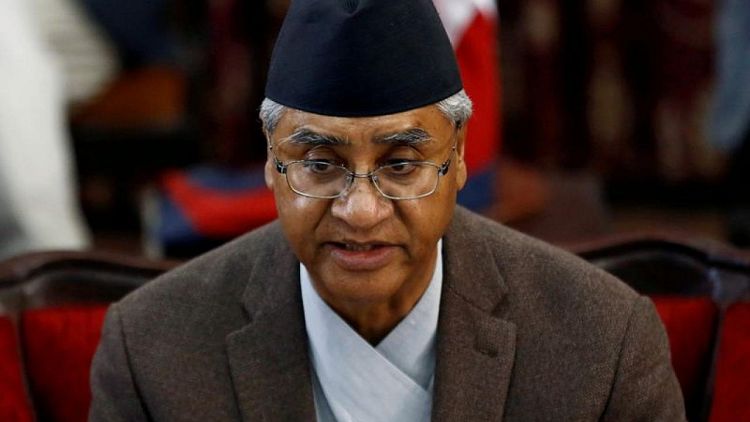By Gopal Sharma
KATHMANDU -Nepal’s president appointed veteran Sher Bahadur Deuba as prime minister on Tuesday, a day after the Supreme Court reinstated the parliament that was dissolved in May in a months-long political crisis.
Deuba, who has held the office four times before, faces the immediate task of procuring COVID-19 vaccines and control the spread of the coronavirus that has infected more than 658,000 people and killed nearly 10,000 - figures experts say fail to reflect the true toll.
"The biggest challenge of the new leader is to free every citizen from suffering from COVID-19 by inoculating them,” said Prakash Sharan Mahat, a senior leader of Deuba’s party.
More than 1.3 million people have had a first dose of COVID-19 vaccine and are awaiting a second shot as the government scrambles to protect its people.
Infections began rising again in April and May although have stabilised to around 1,600 a day in the past weeks.
Deuba, 75, head of the centrist Nepali Congress party, will head a coalition with former Maoist rebels and a party representing a minority community dominant on Nepal's southern plains.
President Bidya Devi Bhandari administered the oath of office to Deuba, who was clad in tight white trousers, a knee-long loose shirt and a boat-shaped black cap.
Deuba named a small cabinet of four ministers and appointed Janardan Sharma, a former Maoist rebel, as finance minister, president's office said.
Party officials said the leader was expected to name his full cabinet after the vote of confidence he must win in parliament in the next month.
The Supreme Court on Monday ordered Deuba be appointed in place of K.P. Sharma Oli, who had failed to win a vote of confidence and dissolved parliament twice in recent months, which the court ruled was unconstitutional.
Deuba, a staunch democrat, will aim to end corruption and create conditions for free and fair elections due next year following the latest bout of political instability, Mahat said.
But Krishna Khanal, who teaches political science at Kathmandu’s Tribhuvan University, said Deuba had struggled when he led governments before.
"The country has faced major crises every time he was prime minister in the past," Khanal told Reuters.
